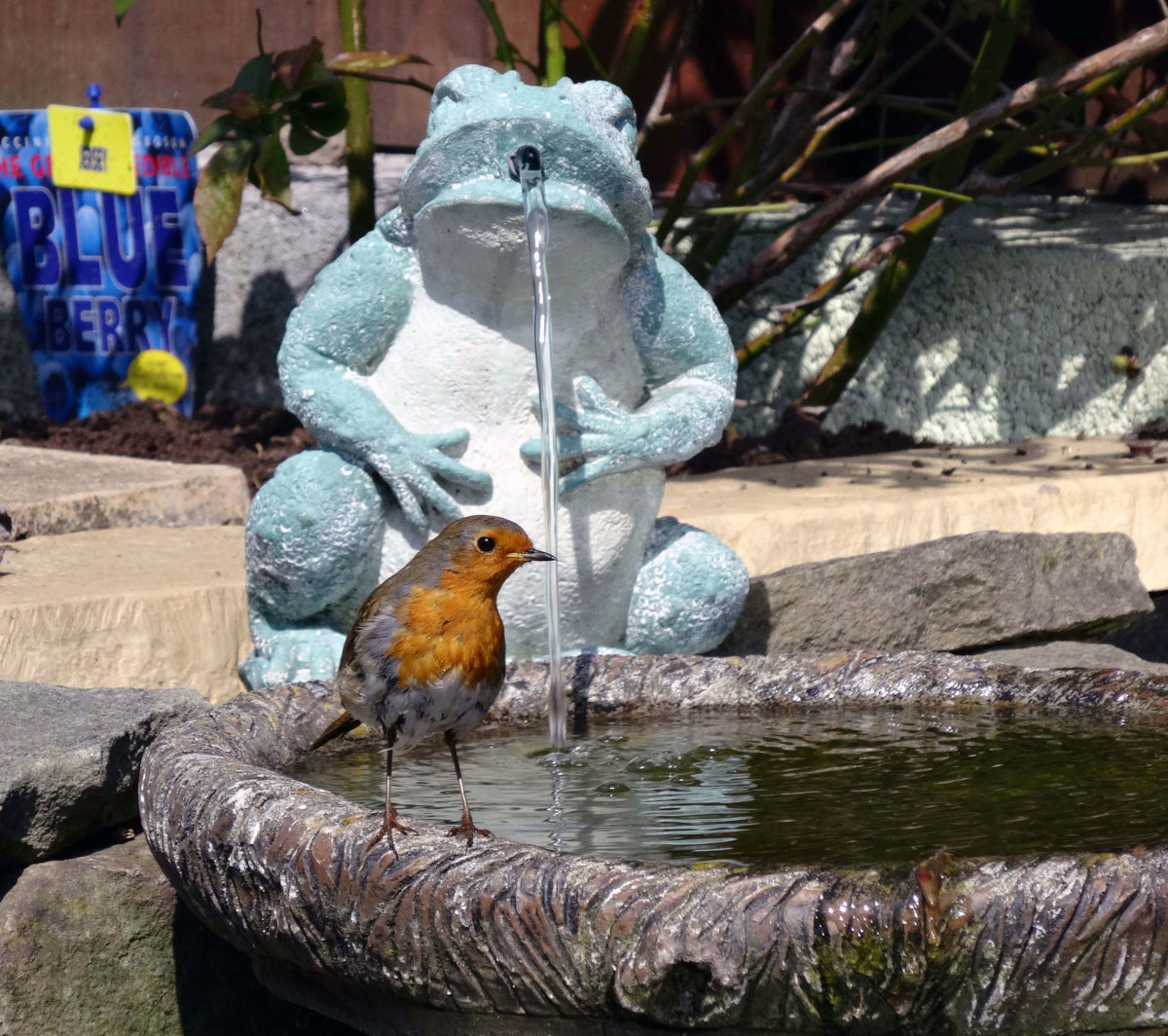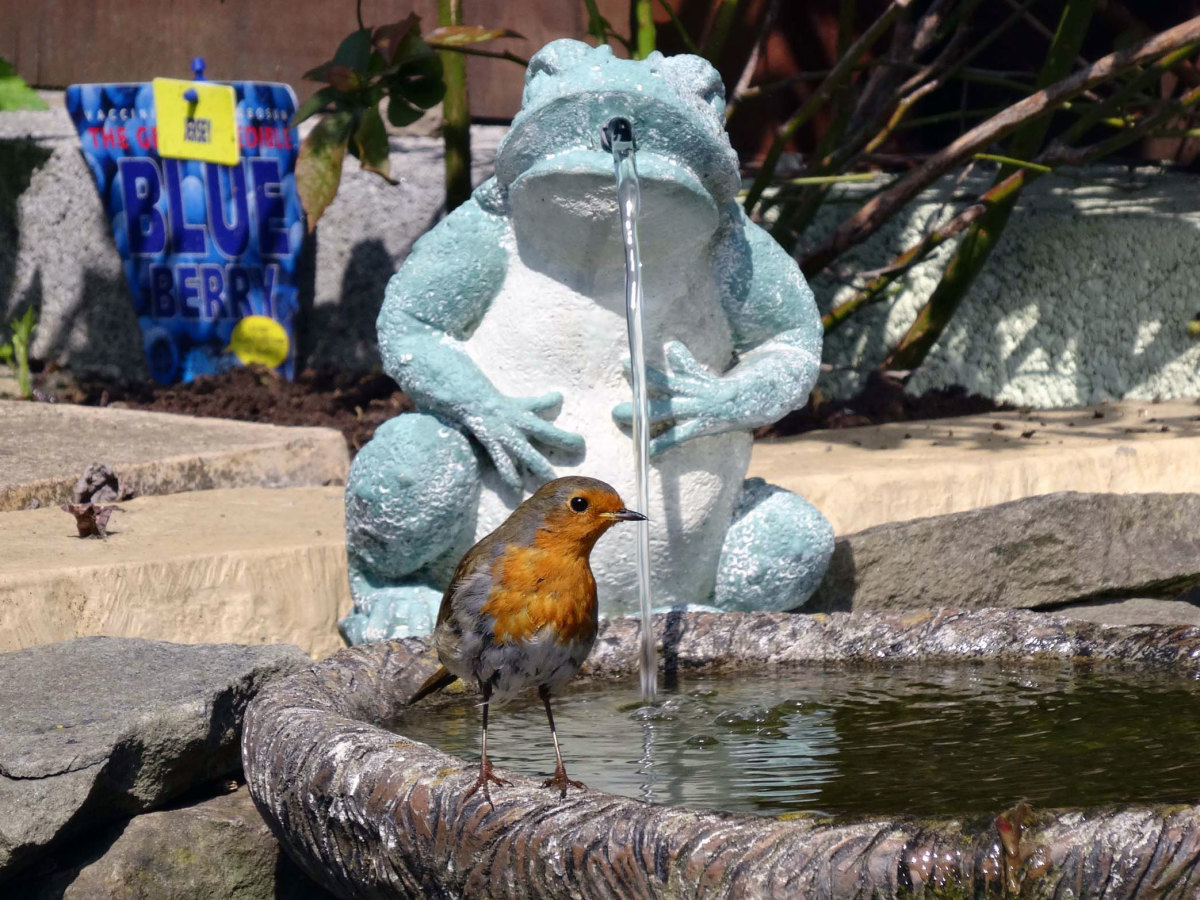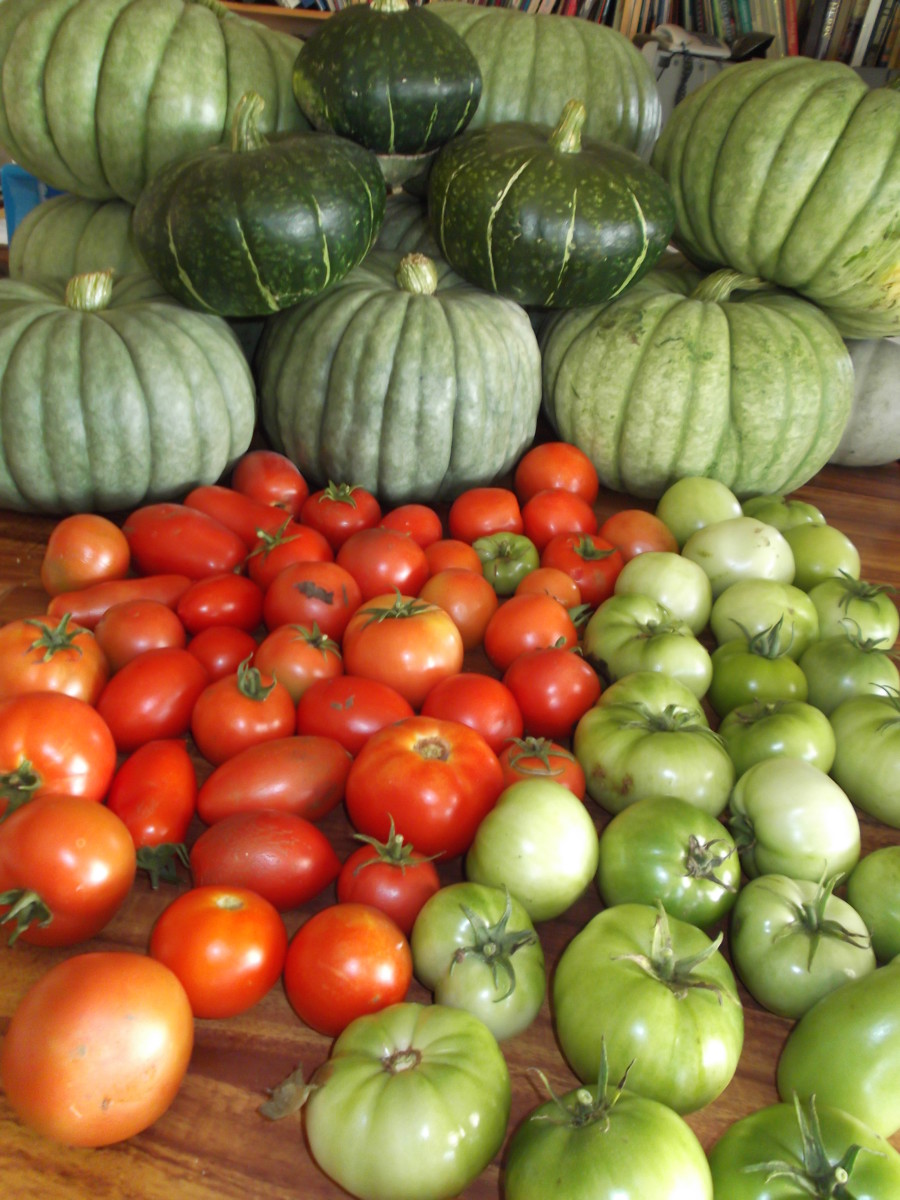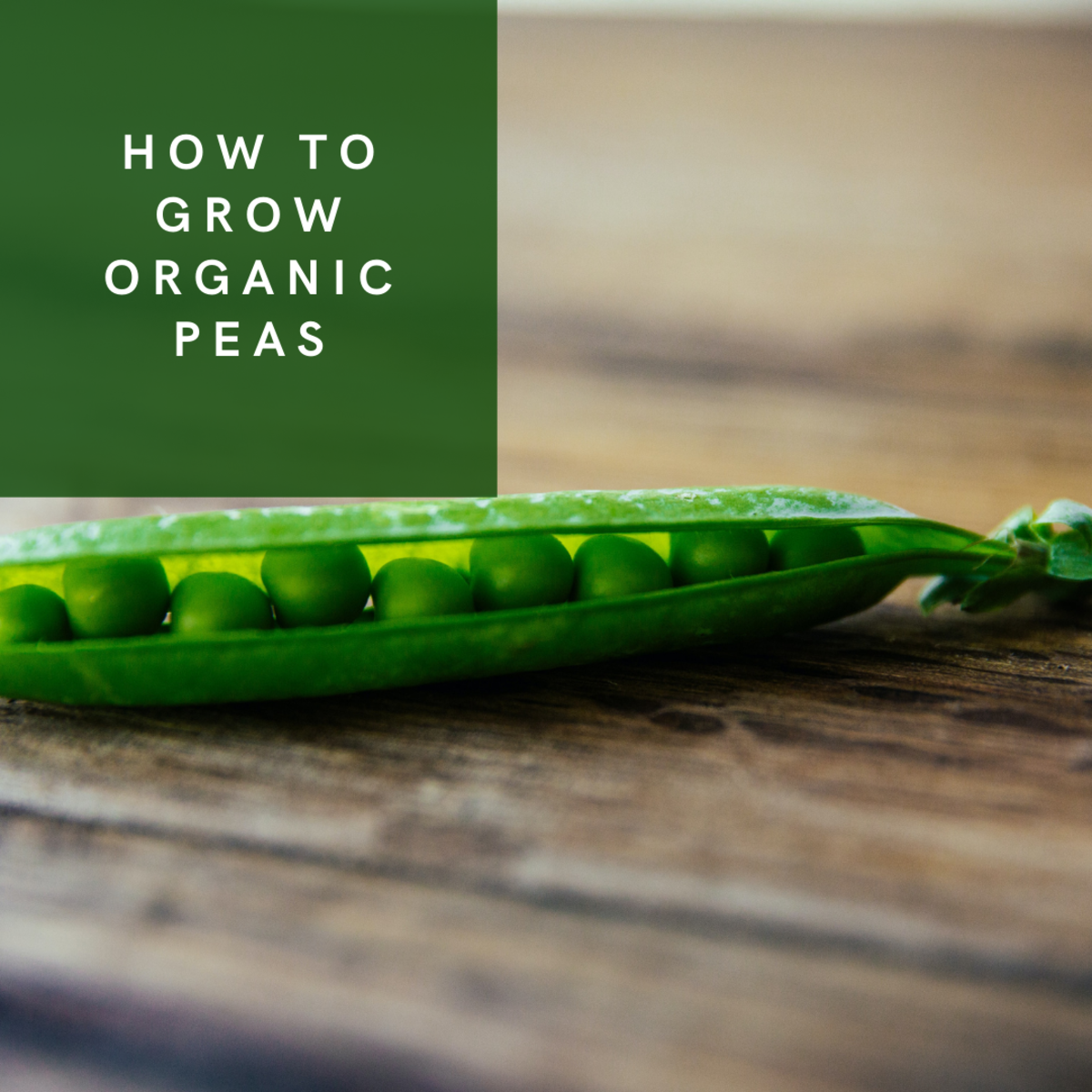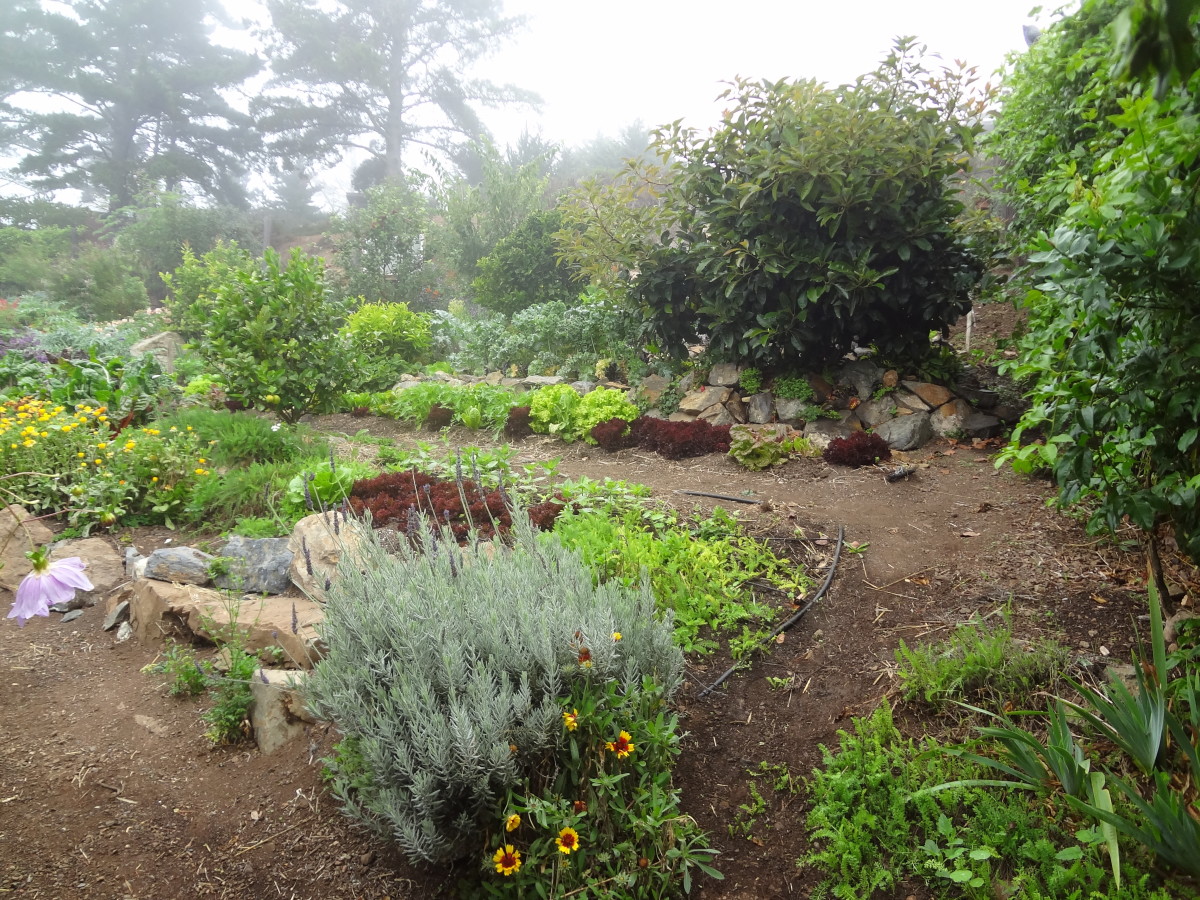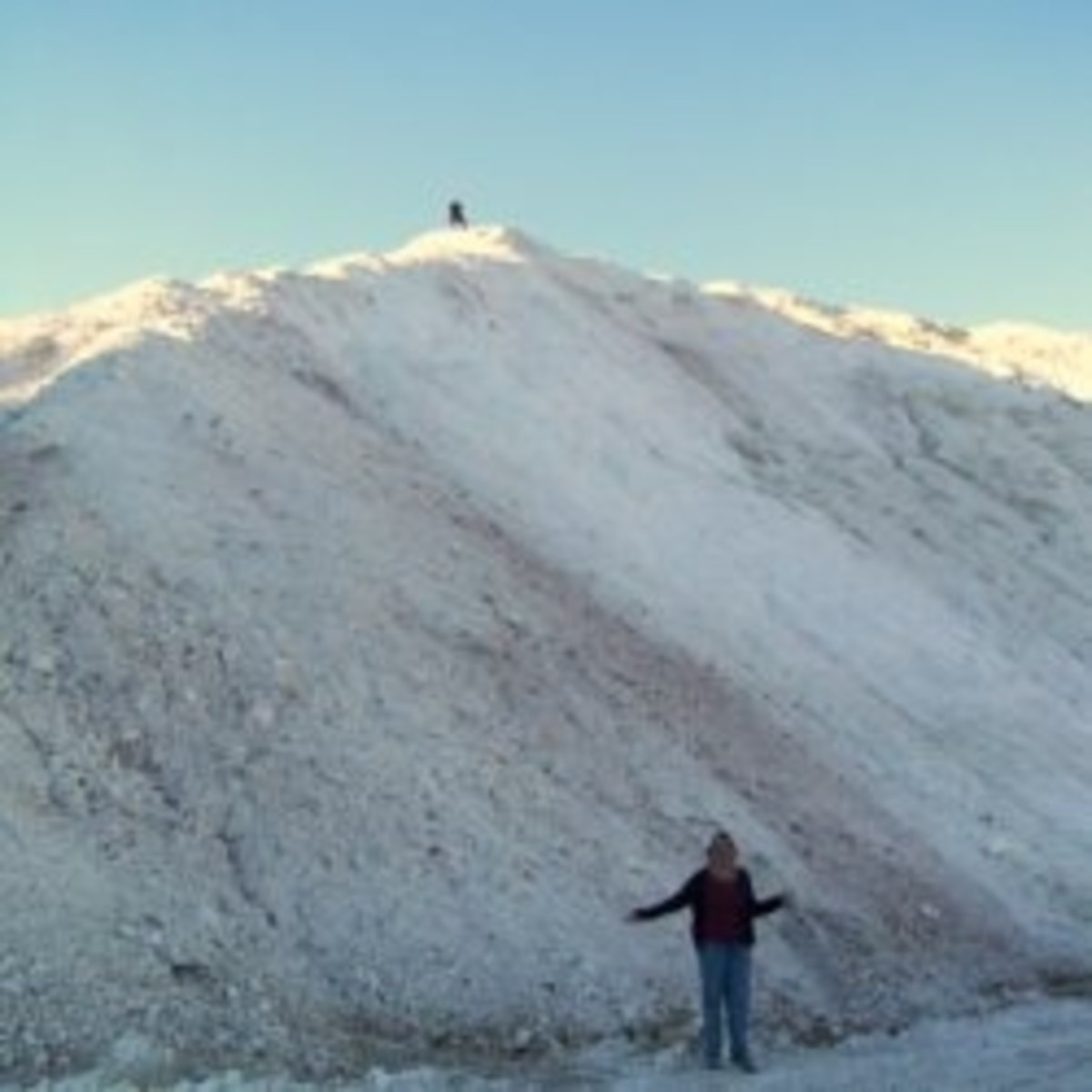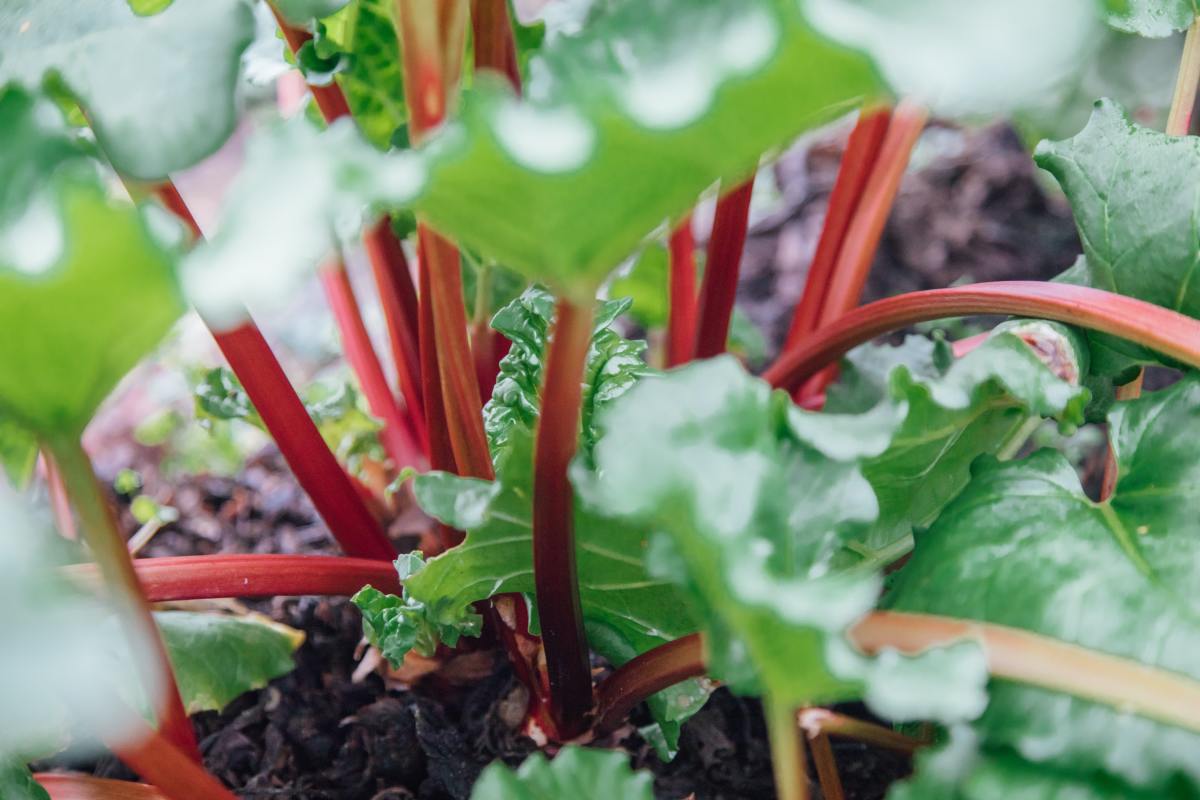Enjoy Healthy Eating And Great Adventure With Organic Gardening!
Organic Gardening Provides Abundant Eating!
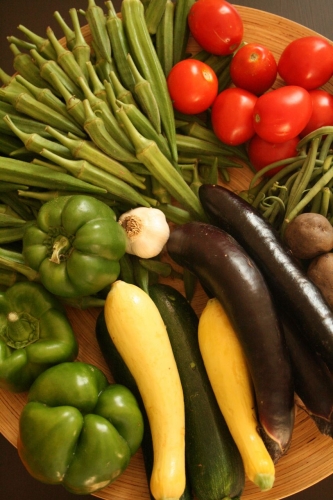
Save your composting scraps in style!
Heirloom gardening provides sustainable living!
Join Hub Pages!
- HubPages Tour
Join HubPages, where you can write about the things you know and love—and even earn money! I love getting feedback from other writers on the site, too.
Processed food labels reveal a world of hurt!
When you read the labels on food packaging at your local grocery stores, you will quickly become aware of the preservatives and chemicals used in the production of commercial foods. These processed foods are not healthy for anyone, and eating the produce from your own organic garden is one way to improve the quality of your diet. Here are a few great “green thumb” organic gardening tips to get you started down the organic garden path.
Enrich your soil with homemade compost!
Plants need nutritious soil to produce a good crop of vegetables. Most gardens start out with average or poor soil and need to be amended with organic compost or fertilizer. You can make your own compost by piling leaves, grass clippings and any vegetable scraps in a composting bin or in a pile in an out of the way place in your yard if you have the space. Turn the compost a few times during the winter months, and by spring, it should be ready to mix into the soil of your garden. Aged manure is also great organic fertilizer and can be purchased in bags or from a local farmer. Good soil produces robust plants with strong immune systems to repel pests naturally!
Know your plants & support heirloom gardening!
Different plants need different kinds of soil. Root crops, such as carrots and beets do well in rather sandy soil, and corn needs good drainage. Check the package labels of seeds for information on how much sun and water they need, as well as what soil type they require. If you can afford it, buy heirloom seeds rather than purchasing commercial seeds, which are highly likely to come from Monsanto and be genetically modified.
Raised bed, container & soil bag gardening are great solutions for limited space, poor soil and/or lowered mobility!
Growing plants in raised beds and containers is a good idea if you have a problem bending over or kneeling for long periods of time or if your space is limited and/or your soil poor. Raised beds also prevent grass roots from migrating into your garden space. Containers can keep pests like rabbits from munching on your tender young plants if they are high enough.
You can also grow directly in bags of organic bedding soil if you wish. Just lay down a thick bed of leaves or newspapers, punch drainage holes in one side of the soil bag and lay it down on the leaves or newspaper. Cut a rectangle out of the exposed side of the bag, and voila! You have an instant raised bed/container garden! At the end of the growing season, you can just empty the bag onto your garden and turn the now-composted leaves or newspaper into the soil for added nourishment. If you are doing patio gardening, you can put all this into your composting bin and let it simmer until time to plant again!
Water wisely and well!
Keeping your garden well watered can be a challenge if you work away from home during the day. It is always best to water plants in the early morning or in the evening, but a tight time schedule can make that difficult. Solve the problem by using soaker hoses running between your rows of vegetables. This is the most water-wise way to keep your plants hydrated because you lose little or no precious water to evaporation. Placing your soaker hoses under a layer of mulch will assure that your garden gets the most benefit from this most precious natural resource. You can even put the hoses on a timer, or run them at night when you are home to turn them off again. If they are operated by a timer, make sure to turn them off when you have a rainy day or two.
Natural tips for handling pests…
- If rabbits are a problem in your area, try planting a row of marigold flowers around the perimeter of your garden space. They have a strong odor which rabbits do not like, and may encourage the bunnies to choose somewhere else to find their lunch. A little rabbit fencing is also a good idea!
- Marigolds will repel a number of destructive insects. For more insect control, be sure to encourage birds, toads and box turtles (if you are lucky enough to have them around) to hang out in your garden. Be absolutely sure not to use any toxic substances in your garden that will sully the purity of your veggies and harm your friendly native bug sentinels!
- Food grade diatomaceous earth sprinkled on and around your tender plants prevents insect eggs from hatching out and provides some nourishment for the soil. You must replenish it frequently if you water by hand or sprinkler because it will be washed into the soil. If you use soaker hoses, your diatomaceous earth will last longer. Be sure to use food grade and not the type intended for swimming pool maintenance as this type is dangerous.
Organic gardening brings great benefits!
When you use these methods rather than chemical repellents and fertilizers your garden organic will be as close to organic as you can get it, and your vegetables will be far better for you than anything you can buy in the store. A few non-organic elements may be blown in on the breeze or lingering in your soil, but you'll still be a lot better off than you would be with storebough produce.
They don't eat much!
You may still have a few stray pests in your garden, but they won’t do much damage, and you will be able to keep them under control by simply picking them off your plants. Remember that plants and veggies with a few little bug bites in them may not look as posh as those at the grocery store, but they won’t actually hurt you. Just cut out the nibbled part and prepare as usual!
Organic gardening brings many benefits!
Raising a garden is an excellent and rewarding way to relax and enjoy the outdoors while providing plentiful and excellent food for yourself and your family. If you are growing your own vegetables for the first time, you may hit a few snags, and there are definitely lessons you will learn by doing as you go along. Take the opportunity to learn along the way with great books on gardening and videos and other excellent online tips, forums and information websites. Having a garden of your own is a great way to shed stress and save money. The greatest benefit comes from knowing your vegetables are 100 percent natural and safe to eat.
Copyright:SuzanneBennett:May 17, 2012




